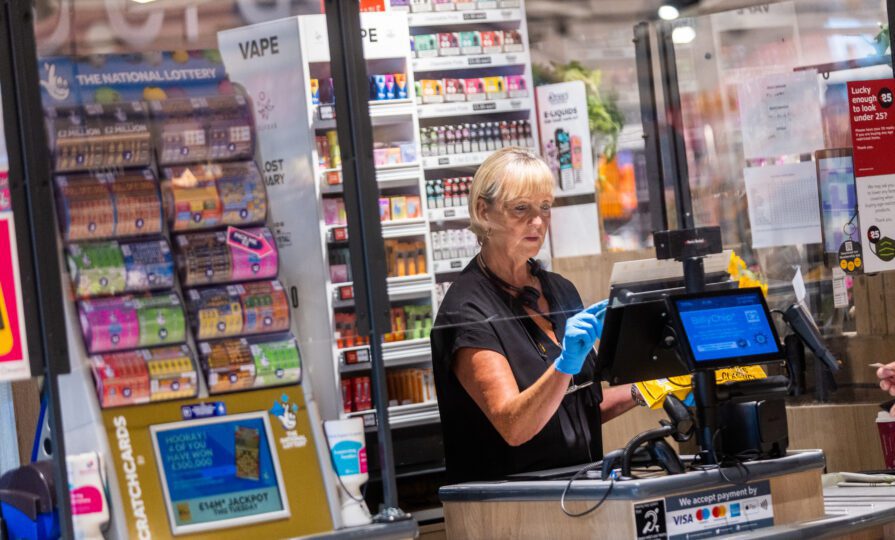What is the Retail Crime Bill and its implications for retailers?
On 5 December, members of the House of Lords are expected to discuss retail crime and its consequences on workers and the community at large

Register to get 1 free article
Reveal the article below by registering for our email newsletter.
Want unlimited access? View Plans
Already have an account? Sign in
The UK Retail Crime Bill, introduced in the 2024 King’s Speech, is a legislative response to the rise in retail crime, including theft, organized retail theft, and assaults on shopworkers. The bill represents a step forward in addressing the financial, operational, and emotional toll retail crime has on businesses, employees, and communities.
Retail crime, as defined by the British Independent Retailers Association (BIRA), encompasses criminal activities targeting retail establishments such as shops, supermarkets, or shopping centres. It includes theft and robbery (Theft Act 1968), common assault (Criminal Justice Act 1988), grievous bodily harm (Offences Against the Person Act 1861), and harassment (Protection from Harassment Act 1997).
A controversial aspect of the current law, Section 176 of the Anti-Social Behaviour, Crime, and Policing Act 2014, classifies theft of goods under £200 as “low-value shoplifting,” often treated as a less serious summary offence.
Shoplifting and violence against retail workers have reached unprecedented levels in the past few years. Police-recorded shoplifting offences rose by 29% in 2024, with over 469,000 incidents reported, the highest since records began in 2003. Violence and abuse against retail workers surged, averaging 1,306 incidents daily in 2022/23, a significant increase from pre-pandemic levels.
Organised crime is also a growing concern. Reports from the 2023 Commercial Victimisation Survey found 41% of wholesale and retail premises experienced crime, with customer theft impacting 26% of these businesses. Supermarkets reported even higher rates, with 76% affected by theft and 43% facing violence or threats.
According to the BRC, retail crime is estimated to cost the sector £3.3bn in 2024. Of this, customer theft alone accounts for £1.79bn. Retailers have invested heavily in crime prevention, spending £1.2bn in 2022/23 on measures like security systems. Beyond financial loss, the emotional impact on workers is profound: 47% of retail employees fear for their safety, and 39% have considered leaving their jobs due to violent incidents.
Key provisions of the Retail Crime Bill
The bill includes measures designed to enhance protection for workers and address the root causes of retail crime:
- Standalone offense for assaults on retail workers: this will criminalise assault, threats, or abuse against shop staff, marking a major policy shift. Convictions may include Criminal Behaviour Orders restricting offenders’ access to certain premises.
- Repealing low-value shoplifting classification: removing the £200 threshold for shoplifting will elevate such crimes to more serious offences, ensuring greater police attention and accountability for repeat offenders.
- Respect orders: new powers will allow police and councils to ban persistent offenders from town centres or retail premises. Breaches could result in severe penalties, including imprisonment or fines.
- Increased surveillance: significant investments will enhance facial recognition technologies to prevent and identify retail crime.
- Expanded funding: additional funding will support police intelligence units, training for crime prevention, and new initiatives to combat organized retail theft.
Under the new Retail Crime Bill, retailers should anticipate several significant operational adjustments. Reporting mechanisms will be enhanced, with improved police response systems encouraging more consistent incident reporting.
Retailers are likely to deepen their collaboration with law enforcement and participate in initiatives such as the Pegasus scheme, which coordinates efforts to tackle organised retail crime. To align with the bill’s focus on prevention, businesses may need to adopt advanced technologies, such as facial recognition, to identify and deter criminal activities effectively.
Furthermore, training for staff will become essential, focusing on equipping employees to handle violent incidents, recognise organised crime patterns, and utilise new reporting frameworks.
Collectively, these changes aim to bolster the safety and resilience of retail businesses while strengthening their role in combating retail crime comprehensively.
On 5 December, members of the House of Lords are expected to discuss retail crime and its consequences on workers and the community at large.







